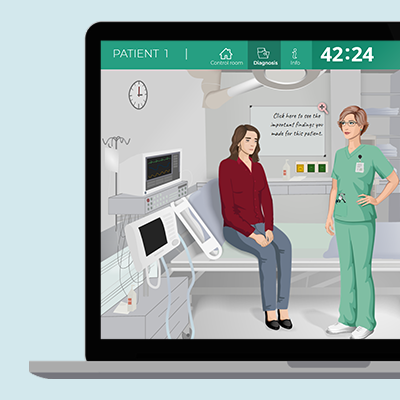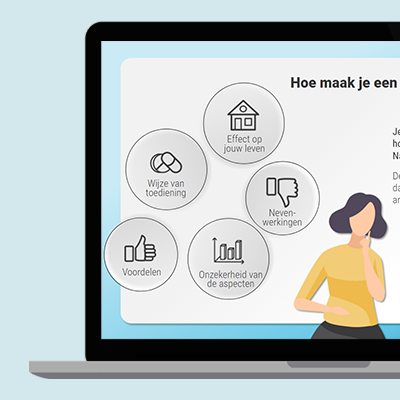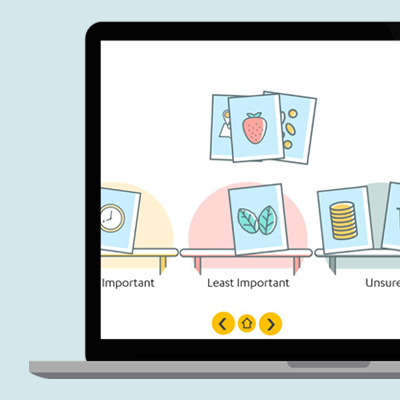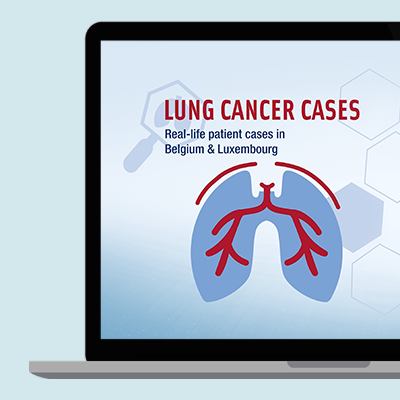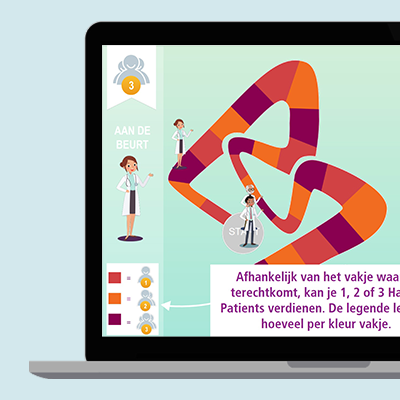OUR STORY
Evidence-based digital tools for health. Understand. Empower. Improve.
Digital health tools such as serious games, interactive apps and e-learnings can be a powerful and cost-effective way to educate and empower patients, family caregivers, or healthcare professionals. They can also help change behaviours and improve patient outcomes. Yet, many digital health tools fail, despite major investments in development and commercialization. Most lack a scientific basis and have not been clinically validated before entering the market.
To help you succeed whilst reducing your development cost and increasing your return on investment (ROI), we developed SERES™, a scientifically-validated methodology to create theory-driven evidence-based tools for health. We’ve helped clients conceptualize, design and build evidence-based tools for oncology, mental health, cardiovascular disease, rheumatology, endocrinology and a range of orphan diseases.
MindBytes develops tools for patients, healthcare professionals and caregivers
that improve their lives through understanding and sustainable behavior changes.

Enhance decision-making by empowering patients
- Understand patient needs and preferences
- Improve doctor-patient communication
- Increase treatment satisfaction and adherence
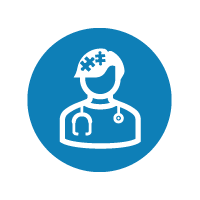
Improve doctor's diagnosis capabilities
- Improve disease awareness
- Increase confidence in correct treatment and/or referral
- Ultimately leading to better QoL for patients and caregivers

Empower patients and caregivers to cope with disease
- Practice coping behaviors
- Learn to handle disease challenges
- Improve quality of life (QoL) for patients and caregivers
- Enhance therapy adherence
OUR APPROACH
Our clinically validated SERES™ framework will help your project succeed.
We are science PhDs and MScs, designers and engineers with 10+ years of experience in the healthcare sector. We have a proven track record in designing scientifically founded, evidence-based digital health tools.1,2 Our clinically validated SERES™ framework3,4 will help your digital health project succeed, where others fail.
1. Matthyssens LE, Vanhulle A, Seldenslach L, Vander Stichele G, Coppens M, Van Hoecke E. A pilot study of the effectiveness of a serious game CliniPup® on perioperative anxiety and pain in children. J Pediatr Surg. 2020;55(2):304-311. doi:10.1016/j.jpedsurg.2019.10.031 2. Vass CM, Davison NJ, Vander Stichele G, Payne K. A Picture is Worth a Thousand Words: The Role of Survey Training Materials in Stated-Preference Studies. Patient. 2020;13(2):163-173. doi:10.1007/s40271-019-00391-w 3. Verschueren S, Buffel C, Vander Stichele G. Developing Theory-Driven, Evidence-Based Serious Games for Health: Framework Based on Research Community Insights. JMIR Serious Games. 2019;7(2):e11565. doi:10.2196/11565 4.Buffel C, van Aalst J, Bangels A, Toelen J, Allegaert K, Verschueren S, Vander Stichele G. A Web-Based Serious Game for Health to Reduce Perioperative Anxiety and Pain in Children (CliniPup): Pilot Randomized Controlled Trial. JMIR Serious Games. 2019;7(2):e12431. doi:10.2196/12431

We build strong scientific foundations
Our team of PhDs and MScs searches the literature and connects with experts to ensure clinical outcomes can be achieved.
We connect with real life
We connect with users, doctors, patients and experts for insight, feedback and validation.
We create realistic and compelling stories
We transform the science into immersive and captivating narratives, using motivational and emotive elements.
We interact with the players
We measure and capture key data for further research and analysis.
We also ensure good interaction with the player through branching storylines, interactive scoring and other engaging features.
We transform through visual design
We use UX and information design principles to engage users, ensure they emotionally relate to your digital health tool and can intuitively comprehend complex information.
Our evidence-based EDU-GRID aids in choosing the right type of educational tool to meet end users needs.

Plenty possibilities
When developing educational tools, you can make plenty of variants. Some might even not see the forest for the trees:
- Digital or on paper?
- Virtual reality or simple drawings?
Digital tools should be systematically developed to ensure that they meet end user needs.
Recommendations
- Our systematic and evidence-based EDU-GRID tool facilitates this and provides transparent and actionable recommendations for optimal features, format/content and visual elements. For this purpose, we have examined relevant literature, HTA and regulatory requirements.
- Each type of educational tool suits better to a specific patient population, disease or treatment context.
- By answering questions in the EDU-GRID panel, researchers easily see which type of educational tool has potential to maximize participant engagement and understanding and therefore collect higher quality data, achieve (educational) objectives and maximize return on investment (ROI).1
Benefits
- Patients are better informed, less biased, and they better reflect their preferences regarding treatment.
- This has been confirmed by researchers from the University of Manchester who have tested an educational tool developed with EDU-GRID and found improved choice consistency compared to a text-based approach.1
- EDU-GRID has already been applied in 10 studies (PREFER2,3,4,5, patient preference1,6,7,8 and phase II/III RCT’s) and is endorsed by EMA.
1. Vass, C.M., Davison, N.J., Vander Stichele, G. et al. A Picture is Worth a Thousand Words: The Role of Survey Training Materials in Stated-Preference Studies. Patient (2019). doi.org/10.1007/s40271-019-00391-w
2. van Overbeeke E, Hauber B, Michelsen S, et al. Patient preferences for gene therapy in haemophilia: Results from the PAVING threshold technique survey. Haemophilia. 2021;27(6):957-966. doi:10.1111/hae.14401
3. van Overbeeke E, Hauber B, Michelsen S, Goldman M, Simoens S, Huys I. Patient Preferences to Assess Value IN Gene Therapies: Protocol Development for the PAVING Study in Hemophilia. Front Med (Lausanne). 2021;8:595797. Published 2021 Mar 9. doi:10.3389/fmed.2021.595797
4. Jimenez-Moreno AC, Pinto CA, Levitan B, et al. A study protocol for quantifying patient preferences in neuromuscular disorders: a case study of the IMI PREFER Project. Wellcome Open Res. 2020;5:253. Published 2020 Oct 23. doi:10.12688/wellcomeopenres.16116.1
5. Monzani D, Petrocchi S, Oliveri S, et al. Patient Preferences for Lung Cancer Treatments: A Study Protocol for a Preference Survey Using Discrete Choice Experiment and Swing Weighting. Front Med (Lausanne). 2021;8:689114. Published 2021 Aug 2. doi:10.3389/fmed.2021.689114
6. Ver Donck N. Developing a patient decision aid to improve shared decision making in breast cancer. [PhD thesis]. Leuven, Belgium: KU Leuven; 2020. Click here for access
7. Dalal G, Wright SJ, Vass CM, et al. Patient preferences for stratified medicine in psoriasis: a discrete choice experiment. Br J Dermatol. 2021;185(5):978-987. doi:10.1111/bjd.20482
8. Bywall KS, Veldwijk J, Hansson MG, et al. Does being exposed to an educational tool influence patient preferences? The influence of an educational tool on patient preferences assessed by a discrete choice experiment. Patient Educ Couns. 2021;104(10):2577-2585. doi:10.1016/j.pec.2021.03.013
OUR SERVICES
MindBytes can help your team conceptualize, design and build theory-driven, evidence-based digital tools for health (e.g. serious games, apps, interactive modules,…). We also share our expertise on communication, dashboards, clinical validation, market research and revenue models.
Irrespective of your medium, we provide you with tailored, end-to-end services that result in a powerful and engaging end-product. Leveraging our experience in behaviour change, copywriting, intuitive design, and digital health tool development, we make sure your idea reaches its fullest potential.
Serious games and gamified training materials
We design tools to unlock people’s intrinsic talent for learning and help effectuate a change in behaviour.
Health data communication, animated video’s and infographics
We provide information of scientific research results and available treatments in an engaging way to inform and/or educate patients, clinicians, and employees.
Dashboards, models and simulations
We create interactive tools for registration, reporting and visualization. These can provide information to guide decision-making.
OUR PARTNERSHIPS
Strong collaborations with international academic partners, patient organisations, pharma and hospitals.
MindBytes believes in the power of collaborative partnerships. We’ve had the opportunity to work with a range of industry clients and have ongoing collaborations with various academic partners, patient organisations, care organisations, government and hospitals. To stay ahead of the curve, we also actively participate in international research projects. If you have a project you would like to collaborate on, we’d love to hear from you!
Academic and government
- Academic Centre for General Practice (ACGP)
- VLESP (Flemish Expertise Centre for Suicide Prevention)
- KU Leuven
- UZ Leuven
- UGent
- UZ Gent
- VUB
- Uppsala University
- Manchester University
- Hogeschool Gent
Grant projects
- MyHealthData (ICON project, together with iMinds, IWT)
- PREFER (IMI project)
- PLAYTIME (AAL Programme, VLAIO)
- PACEMA (Baekelandt, VLAIO)
- Project (Kom Op Tegen Kanker)
Many more
- Alzheimer Liga
- Christelijke Mutualiteiten (CM)
- EBMPracticeNet
- CEBAM
- HealthConnect
- Corilus
- ICRI
- Mintlab
- ESAT-STADIUS
- and several leading Pharmaceutical and Biotech Companies
OUR PORTFOLIO
A wide variety of diseases and target populations.
We’ve developed digital health tools for a wide variety of therapeutic areas, including oncology, endocrinology, psychiatry, and orphan diseases. These tools have been developed for patients, family caregivers and healthcare professionals. They focus on education, empowerment, improving decision-making and changing behaviors for the long-term. See our portfolio to learn more!
OUR PUBLICATIONS
MindBytes' publications and academic disseminations
Despite being relatively young, we’ve achieved a lot as a team in the last few years. We have invested significantly in research and development. Together with our research collaborators, we have published numerous manuscripts, abstracts, and theses validating our methods and the impact of our evidence-based digital health tools. Explore our dissemination activities further below by clicking on the location points. (For optimal responsiveness, please use a computer).
DA = decision aid, PROMs = patient-reported outcome measures, RA = rheumatoid arthritis, RCT = randomized controlled trial, SBIT = scenario-based interactive tool
OUR ACHIEVEMENTS
We are world leaders in the development of evidence-based digital health tools.
Click below to discover our achievements over the years and several cases showcasing our digital health tool expertise.

Top 10 Biopharma clients

Published evidence-based methodology, SERES™, cited 87 times since 2019



